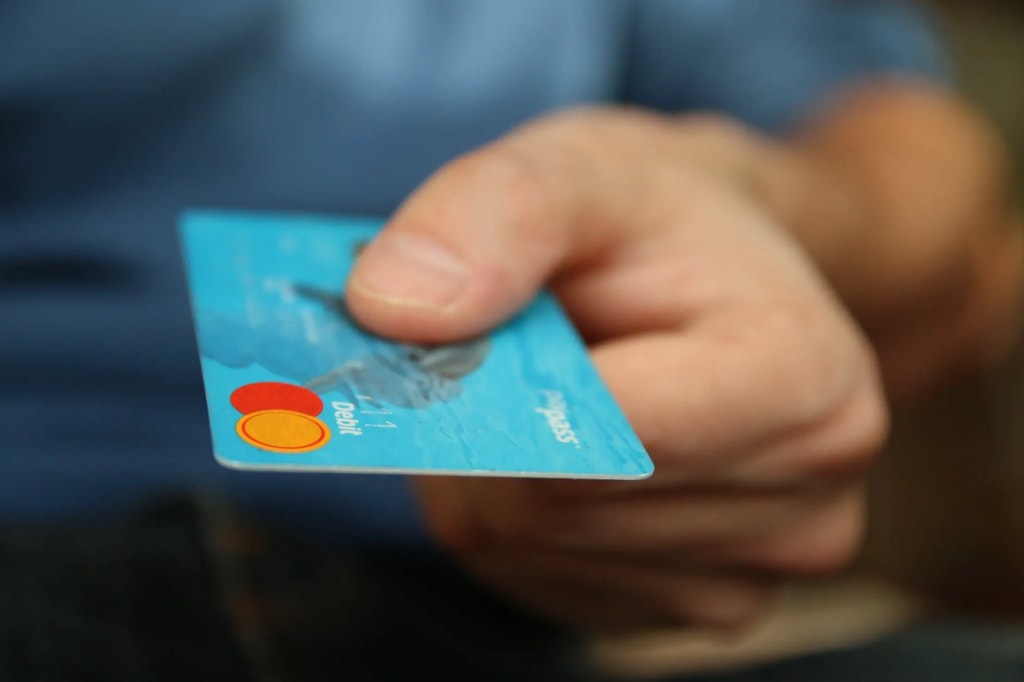How To Prevent Fraudulent Credit Card Use
Credit Card Processing

Content Source : How to Prevent Fraudulent Credit Card Use
The use of credit cards is on the rise, as is credit card fraud. Such instances accelerated during the Covid-19 pandemic when demand for electronic payment options was on the rise for the shopping of necessities. This is paired with the report of varonis.com, which states that scams rose up to 400%, making COVID-19 the largest security threat.
A credit card fraud occurs when someone hacks your account virtually or steals your card physically.
A stolen credit card is unlikely to cost you huge monetary loss and will be a major hassle, which is why it’s critical to take precautions in the first place. It will ensure smooth credit card processing and mitigate the risk of security breaches.
There are a few best ways you can consider now to prevent credit card fraud and spot potential unauthorized access of your card at an initial stage. In order to protect your credit card information from fraudsters, it's important to stay proactive and keep track of your accounts.
To help you prevent and stop credit card fraud in its tracks, here are some types of credit card fraud you should be aware of.
Table of Contents:
Introduction
How fraud detection and prevention work
5 credit card frauds and ways to prevent them
Key credit card fraud finding
FAQs
Wrapping up
How Fraud Detection And Prevention Work
Fraud detection and prevention works include:
An order comes in along with the transaction information of customers, such as CVV and AVS codes. The order data push to the FDP risk model and gets assessed for multiple data points, such as device characteristics, customer location, and behavior to compare them with typical customer attributes. The system then determines if the transaction is adequate based upon the risk score or whether it should be rejected or forwarded for manual review.
If it goes for manual review, the reviewer will analyze the order data to access if it varies from within-range customer behavior. FDP systems will connect with the customer to question for more specific authentication. As the system stores historical data, it can shape new security rules.
When customers invest their money and trust in eCommerce businesses with their information, it’s the business’s responsibility to maintain that trust and ensure a hassle-free purchasing experience while mitigating the risk of security breach - source (GETTRX)
5 Credit Card Frauds and Best Ways to Avoid Them
1. Interest Rate Reduction Scams
Over-the-phone scams are one of the popular frauds that come from “companies” claiming they can help the credit card holder's target's interest rate and save them thousands on interest.
How to Prevent Interest Rate Reduction Scams
If one has a desire to reduce their credit card’s interest rate, they can call the card issuer’s customer service line. You can find the helpline right on the back of the card—and speak with the issuer themselves.
Even a genuine third-party service has no monetary gain negotiating rates with a credit card issuer. The best and safest approach is not to trust all phone calls from anonymous numbers claiming themselves a legitimate credit card company.
2. Skimming
In credit card skimming, a hacker makes use of a device, known as a skimmer and fetches the credit card information. While you swipe a credit card through the device, the skimmer will store every information available on the magnetic stripe of the card. This stripe contains information such as the expiry credit card expiry date, holder’s full name, and the credit card number.
How to Prevent Skimming
It's recommended to use credit cards carefully at places like gas pumps, vending machines, or laundromats in which prevention might be challenging or oversight of the machines might not be direct. It is a good approach to use a mobile wallet wherever possible. It is one way to reduce risk.
3. Overcharge Scams
Overpayment scams happen when a scammer asks you for a ‘refund’ since she has sent you an overpayment for a product or service you are selling.
How to Prevent Overcharge Scams
The best thing one can do to prevent such scams is not to open a suspicious email with suspicious links or attachments. It is recommended to connect with the credit card official published customer support channels. These all are the safest and quick options for getting to the bottom of the situation. never visit or log onto your account from a link in a suspected email. It is always recommended to open your browser separately and type in the accurate address.
4. Donation Scams
Donation scammers ask for donations on the phone, in person, by email via the internet for an organization or an individual. Further, they will ask you to pay via credit card, and steal all your complete information from the card and hack it.
How to Prevent Donation Scams
The victim receives mostly an email or a phone call, in which the scammer pretends to be from an organization or charitable trust.
According to kspersky.com, scammers have pre-developed high-pressure strategies, such as stressing the urgency, which will increase the chances of targeting a victim to donate on the spot.
In most cases, they get success in convincing them to share their credit card information. Make sure to never share your credit card details at any cost with an unauthorized or suspicious company.
5. Phishing Scams
In phishing scams, hackers claim a legitimate credit card company or financial institution and provide suspicious links or fraudulent instructions to access victims' financial information. Once an individual has shared his financial information like credit card number, CVV, or other details, they successfully steal the money from their bank account.
How to Prevent Phishing Scams
Avoid answering security questions on an unsolicited call. This includes questions related to personal information, such as the address street, date of birth, SSN, and the three-digit code mentioned on the back of a credit card.
Phishing scams are a time-sensitive matter and difficult to identify on the spot. But one can consider a short timeframe o in which instructions must be completed as a red flag.
Further, claims like the alleged company “have been unable to contact you until now” or that “this is the last chance for you to take advantage of this offer,” should be considered as another possibility of scams.
Key Credit Card Fraud Findings
Those aged 30 to 39 reported the most cases of credit card fraud.
Credit card theft and fraud made up a total of 459,297 reported instances in 2020.
66,090 approx cases of reported fraud
393,207 approx cases of reported identity theft
Instances of identity theft by credit card fraud increased by 44.6% in 2020.
Accessed theft cases that occurred by new credit card accounts reached 48% in 2020.
Around 40 percent of cardholders do not have text alerts or emails from their credit card company or bank enabled.
According to the FTC report, 38 million dollars were reported in credit card fraud linked directly to COVID-19.
Here are the states with the most identity theft reports in 2020:
California 147,382147,382
Illinois 135,038
Texas 134,788
Florida 101,367
Georgia 69,487
Source; fool.com
FAQs
How can someone use my credit card without the card? A hacker can use several ways to get a hold of your credit card number without actually having your card. They may have phished you via email or may have placed a skimmer on a petrol pump.
How do crooks get credit card details? Criminals target ATMs for financial frauds. They attach skimmer with ATM and copy PINs and card details and trap the card in the machine.
How do I get my money back from unauthorized transactions? If the transaction occurred via a merchant, it's recommended to contact the merchant and ask for a refund for the purchase. The merchant may repay your purchase if the bank doesn't. In case you want to contact a bank, you can contact via the number on the back of your ATM card.
What happens if you falsely dispute a charge? In the eye of the law, it is a crime and has consequences for falsifying testimony. Those who make false claims under oath could face fines or imprisonment, depending on the severity of the case.
Wrapping Up
Your financial safety is in your hands. It is always recommended by experts to put best practices in place to prevent credit card fraud. After taking immediate action to prevent additional fraudulent activity, request copies of your credit reports from credit bureaus to ensure the fraud didn’t extend further.
Keeping monitoring your accounts and responding quickly if you spot unusual activity is critical to mitigating the risk of credit card fraud. So make sure to implement the above-mentioned credit card fraud prevention tips.
About the Creator
Nidhi Sharma
I am passionate about helping people understand content through my easily digestible writing. My writing niche is online payment processing and solutions.






Comments
There are no comments for this story
Be the first to respond and start the conversation.